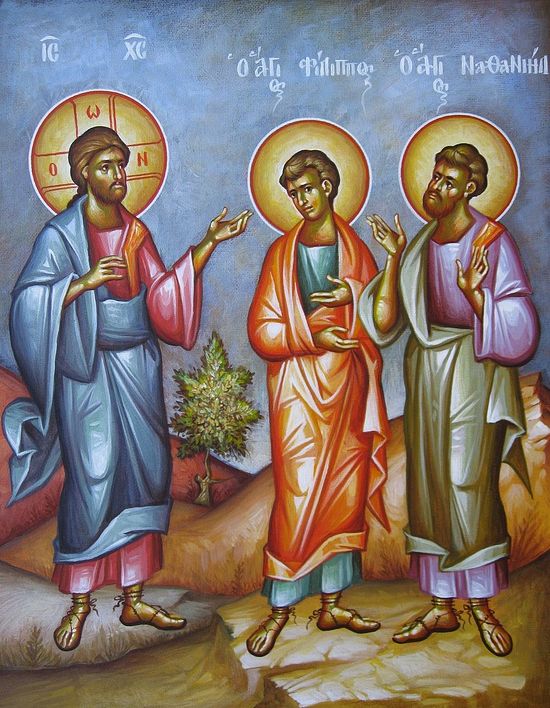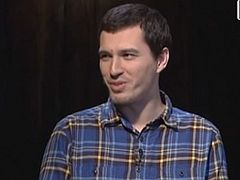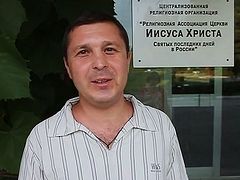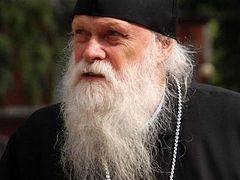Source: Gladsome Light Diaglogues
April 15, 2016
I often hear stories from people I’ve met along the way about the path that lead them to Orthodoxy. More often than not‚ these stories involve books by particular authors or saints whose writings made an influence on their perspective and opened them up to the wealth of the teachings of the Church. These are stories of beautiful and brilliant minds seeking truth amidst the pages of history‚leaving no stone unturned until they found the true path. I sincerely wish I could give you such a brave story of my conversion. The thing is‚ I can’t manage to retrace my steps through books or knowledge‚ though I did read a lot while turning to Orthodoxy. The best picture I can use to describe my journey is this: if these people I mentioned were striding resolutely up the steps to the Church‚ I was on my belly pulling myself up by my hands‚ so to speak. I had to have some help to get here. I didn’t choose Orthodox Christianity because it became clear to me that its theological and historical claims were true?—?although that certainly did happen at some point. I chose Orthodox Christianity because of something much more obscured from my human eyes. A mysterious and Divine magnetism that lifted me up off my hands‚ pulled me into the Church‚ and allowed me to see and feel for myself‚ albeit only to some human‚ limited extent‚ what prayeris about. Though I had made a routine of mocking Christianity and its devotions‚ Christ had patience for me and simply stood there‚ beckoning me with this call: Come and see.
I was born into a Baptist home which turned into a Messianic Jewish home when I was about seven years old. I could literally write an entire book explaining what Messianic Juadaism actually is and detailing my growth within this faith tradition from this young age‚ but instead I’ll skip ahead a few years to the time I started taking my spiritual and religious life somewhat seriously. At a younger age‚ I saw how older people were inclined to read the bible and pray‚whereas my every inclination was to run around outside or build cities out of LEGOs. I assumed that one day I would magically become interested in the life of faith and it wouldn’t be such an effort to sit down and pray or read the Bible. Of course‚ I was wrong. Yet still‚ for the first time‚ I felt myself naturally asking questions about what it is that God expects from us when I was about twelve. When you reach the age where you start to become aware of the effects of your sinfulness‚ these questions start to brew in you involuntarily. I approached a young pious man who I looked up to‚ and asked him how the Law is kept. This young man taught me about the Old Testament and its context within Jewish tradition‚ and we began a many-year-long conversation on observance‚ which included my family and other dear friends as well. Fast forward several years‚we had some knowledge under our belts. Knowledge of Jewish tradition‚Jewish scriptural exegesis‚ ethics‚ Hebrew language‚ practical Talmudic law‚liturgics‚ and even some aspects of Jewish mysticism. The only area of knowledge remaining that we couldn’t seem to develop was the New Testament. It became the red-headed stepchild of our Jewish experience‚ a roadblock to conversion and an impossible task to fit into our spiritual regimen.
This is where some of us parted ways for little bit. I will speak only of the direction I went. It’s surprising to many how religious scholasticism in the western world has actually influenced much of Judaism and its academic praxis. I became obsessed with this side of things. I toted copies of Maimonides and Yehuda HaLevi to school with me‚ absorbing and attempting to apply each minutia of Mishnaic law and digesting each morsel of Aristotelian-influenced Jewish rationalist philosophy. All pretty complicated and important stuff‚ I thought. This is where pride led me into some dangerous places‚ inwardly and outwardly. I became cynical toward my Christian upbringing and quickly demolished whatever belief in a Divine Christ I had left. I chanted every Friday night the Yidgal‚ a Maimonidean creed of Jewish faith‚ particularly the line declaring:
“….He is One?—?and there is no unity like His Oneness?—?Inscrutable and infinite is His Oneness; He has no semblance of a body nor is He corporeal…”
With each theological dogma I rearranged in my head‚ the effect rippled all the way through to my soul. When pride in my own human reasoning took root and Jesus suddenly became merely a created man and no more‚ my insides began to wither. On the outside‚ I was striding towards more perfect performance of the Law of Moses‚ but within me the law of death was gaining victory. At that point‚I began to consider complete conversion to Judaism. In defiance and bitterness towards Christ‚ I was fully resolved to make a formal renunciation of Christianity and embrace the pharisaic orthodox Jewish tradition.
By God’s mercy‚ I was delayed due to some practical issues. I was unable to move to an orthodox community and frankly I lacked the wisdom to even know how to choose one. I stayed put and kept studying with my friend who I had started out with. It was then that my friend‚ who had a long-running love for Christian history and dialogue‚ began to talk about Orthodox Christianity a lot. The mere idea was revolting to me. I had all the answers‚ why did we need to keep looking for a “home for Jesus” in our life of faith? Is the wealth of tradition in Orthodoxy a good enough of a reason to go back into the same faith system I’ve tried to get away from. In my ignorance‚ I had no idea what Orthodox Christianity’s faith actually was. It just sounded Christian and brought back memories of standing in my whitewashed Church as a young child singing “Our God is and Awesome God” with a slightly off-beat drummer. Yet something mysterious began to act on me‚ in time. I began to take interest in the raw beauty aspect of the Church. I searched the web for pictures of churches‚ icons‚ etc…. I developed a benign appreciation for Orthodox worship. It was nothing like my earliest Christian memories such as I described. This is what I meant by my approach to the church being like crawling up stairs. I didn’t search the Church’s books for sound arguments for the Divinity of Christ‚ because my heart was not open to that. It was‚ however‚ open to art and the sheer beauty and mystery of Byzantine chant. As I began to dabble in Church aesthetics‚ I began to see myself being able to truly worship God within these forms. I saw a video somewhere of a monk at St. Katherine’s Monastery of Mt. Sinai‚ tediously beating out a rhythm on the semantron‚ walking up the stairs of the tower to the bells‚ and then masterfully weaving a brilliant web of mysterious sounds. Somehow I instantly related to this kind of strange and foreign ritual‚ and I recognized it as prayer. Gradually‚ the possibility of prayer became a key factor that pulled me into the Church. Between kabbalistic meditation and breathing techniques on one hand‚ and wrote memorization and lifeless recitation of a legally portioned amount of liturgical texts on the other‚ Judaism had failed to provide a place where I could truly pray‚ where I could strip away the masks of cheap piety and stand before the Divine in reverence and fear of Heaven.
Heaven was just what I recognized upon entering an Orthodox Church for the first time (well‚ apart from a brief visit to the Church of the Holy Sepulchre while on a vacation in Jerusalem when I was ten years old). I recognized the smell of incense from that time in Jerusalem immediately. That little connection of childhood nostalgia opened my heart even wider. The chorus of beautiful elements the Church’s liturgical life which were presented to me as tools of prayer grew louder and louder until I had to take it seriously. I couldn’t deny that something was there?—?beyond the icon of Christ‚ there was a man‚and at the same time something more than just a man. Fueled by a desire for prayer and spiritual life‚ I began a process that continues to this day‚ of accepting that I cannot fully digest this idea of Christ as the “God-Man” like I could digest the Jewish “static” monotheism. I can’t pinpoint a definite moment where I accepted that Christ was indeed God and Man‚ but the text of On the Incarnation by St. Athanasius helped my brain to quench its unquenchable objections. I began reading various Orthodox books‚ old and new‚ and began‚through God’s steadfast mercy and love‚ rebuilding the faith I once tried to demolish. I must end my story here‚ because this is where I am now. I am still a spiritual infant‚ learning the basics of the Gospel and allowing‚ or at least trying to allow Christ to conquer this flesh rebuild me from the ground up. I eagerly await Baptism‚ Chrismation‚ and Communion‚ and though I am ignorant and blind to the true significance of the Sacraments‚ I know I need them. Please pray for me.




